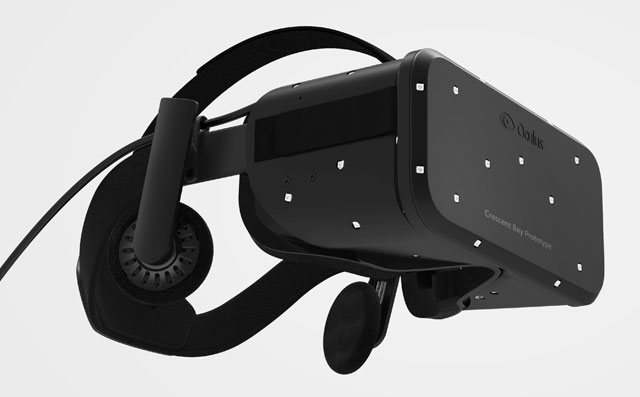Apart from Facebook’s Oculus Rift bug bounty program from last month, nothing noticeable happened in Oculus VR’s backyard since the social network acquired it. Now, the ‘Crescent Bay’ prototype and the recent rumors suggest that a retail version should be launched soon, quite possibly at the company’s conference.
Since there is a new prototype and Facebook has been concerned about ways to perfect Oculus Rift, it’s rather clear that the Oculus VR team has been busy lately, and not just silent. ‘Crescent Bay’, as this prototype VR headset is known as, represents a major step forward for the company, and is considered by CEO Brendan Iribe “as big a leap as from DK1 to DK2.”

Among the most notable improvements over the first two developer kits, a couple worth mentioning are the 360 degree tracking and integrated audio. The better resolution, correlated with the improved refresh rate, should make the gaming experience a lot more immersive.
Oculus VR implemented in its latest prototype a 3D audio technology developed by RealSpace 3-D, which was used under a license. Iribe pointed out that ‘Crescent Bay’ “allows for sustained presence… this allows you to achieve the impossible and believe you are in a world comfortably. It’s getting much, much closer to consumer Rift.”
Another important news is the launch of the Oculus Platform, a store where developers will contribute their VR apps. I assume this will resemble Google’s Play Store or Apple’s iTunes Store, in that it will feature games and apps, both with and without charge. First of all, the Oculus Platform will be available on Samsung’s Gear VR this fall, since Oculus VR was involved in the development of the Korean tech giant’s headset. Soon after that, the store should make its way to PCs and mobile devices.
Luckily for anyone wanting to access the store, taking the headset off won’t be necessary, “so that anyone can dive in and explore the Oculus ecosystem from the start,” as Nate Mitchell, Oculus VR’s VP of product explained. As Mitchell pointed out, the main purpose of the Oculus Platform is to help users discover and buy new content.
There’s a bright future for VR headset makers and virtual reality app developers, and it’s a certainty that Facebook was well aware of that when it acquired Oculus VR.
Be social! Follow Walyou on Facebook and Twitter, and read more related stories about the Oculus Rift hack that enables POV on the Black Armor drone, and the Oculus VR Crystal Cove prototype.










